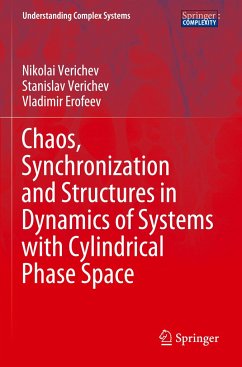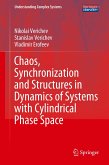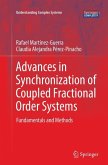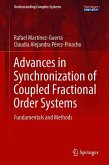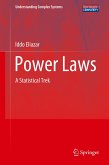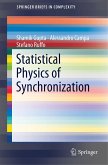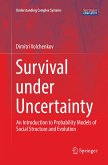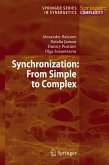This book develops analytical methods for studying the dynamical chaos, synchronization, and dynamics of structures in various models of coupled rotators.
Rotators and their systems are defined in a cylindrical phase space, and, unlike oscillators, which are defined in Rn, they have a wider "range" of motion: There are vibrational and rotational types for cyclic variables, as well as their combinations (rotational-vibrational) if the number of cyclic variables is more than one. The specificity of rotator phase space poses serious challenges in terms of selecting methods for studying the dynamics of related systems.
The book chiefly focuses on developing a modified form of the method of averaging, which can be used to study the dynamics of rotators. In general, the book uses the "language" of the qualitative theory of differential equations, point mappings, and the theory of bifurcations, which helps authors to obtain new results on dynamical chaos in systemswith few degrees of freedom. In addition, a special section is devoted to the study and classification of dynamic structures that can occur in systems with a large number of interconnected objects, i.e. in lattices of rotators and/or oscillators.
Given its scope and format, the book can be used both in lectures and courses on nonlinear dynamics, and in specialized courses on the development and operation of relevant systems that can be represented by a large number of various practical systems: interconnected grids of various mechanical systems, various types of networks including not only mechanical but also biological systems, etc.
Rotators and their systems are defined in a cylindrical phase space, and, unlike oscillators, which are defined in Rn, they have a wider "range" of motion: There are vibrational and rotational types for cyclic variables, as well as their combinations (rotational-vibrational) if the number of cyclic variables is more than one. The specificity of rotator phase space poses serious challenges in terms of selecting methods for studying the dynamics of related systems.
The book chiefly focuses on developing a modified form of the method of averaging, which can be used to study the dynamics of rotators. In general, the book uses the "language" of the qualitative theory of differential equations, point mappings, and the theory of bifurcations, which helps authors to obtain new results on dynamical chaos in systemswith few degrees of freedom. In addition, a special section is devoted to the study and classification of dynamic structures that can occur in systems with a large number of interconnected objects, i.e. in lattices of rotators and/or oscillators.
Given its scope and format, the book can be used both in lectures and courses on nonlinear dynamics, and in specialized courses on the development and operation of relevant systems that can be represented by a large number of various practical systems: interconnected grids of various mechanical systems, various types of networks including not only mechanical but also biological systems, etc.

